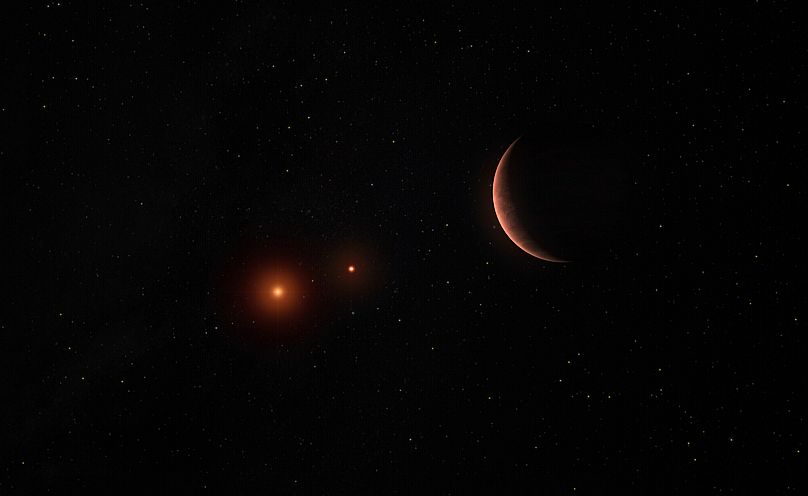Astronomers have found possible chemical signs of life on a distant planet outside our solar system, though they caution more work is needed to confirm their findings.
The research, led by scientists at the University of Cambridge, detected evidence of compounds in the exoplanet's atmosphere that on Earth are only produced by living organisms and contend it's the strongest potential signal yet of life.
Independent scientists described the findings as interesting, but not enough to show the existence of life on another planet.
"It is the strongest sign to date of any possibility of biological activity outside the solar system," Cambridge astrophysicist Nikku Madhusudhan said during a livestream on Thursday.

By analysing data from NASA and the European Space Agency's Webb Space Telescope, the researchers found evidence of dimethyl sulphide and dimethyl disulphide in the atmosphere of the planet known as K2-18b.
On Earth, those two compounds are produced primarily by microbial life, such as marine phytoplankton.
The planet is more than double Earth’s size and more than eight times more massive. It's in the so-called habitable zone of its star.
It is 124 light-years away. One light-year is equivalent to nearly six trillion miles.
Madhusudhan stressed that further research is needed to rule out any errors or the possibility of other processes, besides living organisms, that could produce the compounds.
David Clements, an astrophysicist at Imperial College London, said atmospheres on other planets are complex and difficult to understand, especially with the limited information available from a planet so far away.
"This is really interesting stuff and, while it does not yet represent a clear detection of dimethyl sulphide and dimethyl disulphide, it is a step in the right direction," he said in comments released by the Science Media Centre in London.
More than 5,500 planets orbiting other stars have been confirmed so far. Thousands more are in the running out of the billions in our Milky Way galaxy alone.
Launched in 2021, Webb is the biggest and most powerful observatory ever sent into space.







